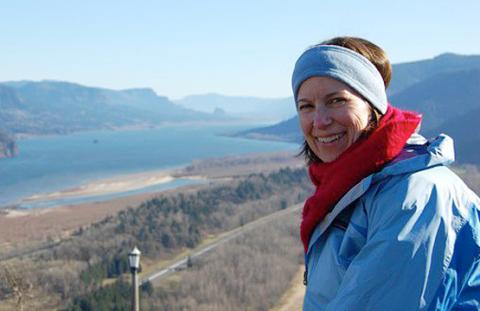
Maryland Sea Grant
I work with communicators, scientists, university extension agents and educators to help make estuarine science understandable for and accessible to a broad array of citizens and government officials who care about the health of Chesapeake Bay.
Education
- B.S., Earth Sciences, University of California, Santa Cruz
- B.A., Environmental Studies, University of California, Santa Cruz
- M.S., Geological Sciences, Rutgers University
- Ph.D., Environmental Sciences, Institute of Marine and Coastal Sciences, Rutgers University
What is your current job and what does it entail?
I am the director of the Maryland Sea Grant College Program. The Sea Grant College Program is a congressionally mandated program that supports Sea Grant Colleges located primarily at land-grant colleges in all the coastal and Great Lake states. Our mission is to support research, education and outreach on critical coastal, estuarine and watershed issues in Maryland under the umbrella of a national network of Sea Grant programs. In Maryland, a lot of our work focuses on issues surrounding the conservation and restoration of the Chesapeake Bay,a unique and highly cherished natural treasure of the state. As the director of the program, I work with communicators, scientists, university extension agents (whose job is to reach out to our constituents in Maryland on issues ranging from fisheries management to storm water mitigation) and educators to help make estuarine science understandable for and accessible to a broad array of citizens and government officials who care about the health of the bay.
What was the key factor in your career decision?
There have been a lot of key factors, but my main interest has always been at the intersection of natural science and society. Maryland Sea Grant is perfect for me because from our university location we work to connect the very best marine, coastal and estuarine science with government, private industry and the public to inform sound decisions.
What do like most about your career?
My job is never boring. I work with wonderful, smart people and most everyone is committed to working together to find the best solutions. I've always enjoyed coastal and estuarine research, and this job lets me stay engaged with the science while pursuing my other passion for science policy.
What do you like least about your career?
I really enjoy my career immensely and I feel enormously fortunate to have been able to pursue such a rich and rewarding life. Sometimes, however, it is frustrating that there are not enough resources to do more.
What do you do to relax?
Yoga, walking my dogs, reading and enjoying good food with family and friends.
Who are your heroes/heroines?
My family and so many of my friends inspire me. For great people with great stories I turn to Supreme Court Justice Sonia Sotomayor and University of Maryland, Baltimore County, President Freeman Hrabowski.
What advice would you give a student who expressed an interest in pursuing a career in your field?
Do what you love and follow your heart. You will spend much longer working in a career than pursuing your education, so make sure that career is something that brings you joy and intellectual pleasure.
Are career opportunities in your field increasing or decreasing and why?
I think that with the looming threat of climate change, there will be an explosion in jobs for STEM (science, technology, engineering and mathematics) specialists who can help with the difficult adaptation issues we will be addressing in the next 50 years.
What will you be doing 10 years from today?
I hope the same work I am doing now, though I would like the opportunity to work more closely with students from underserved communities.

